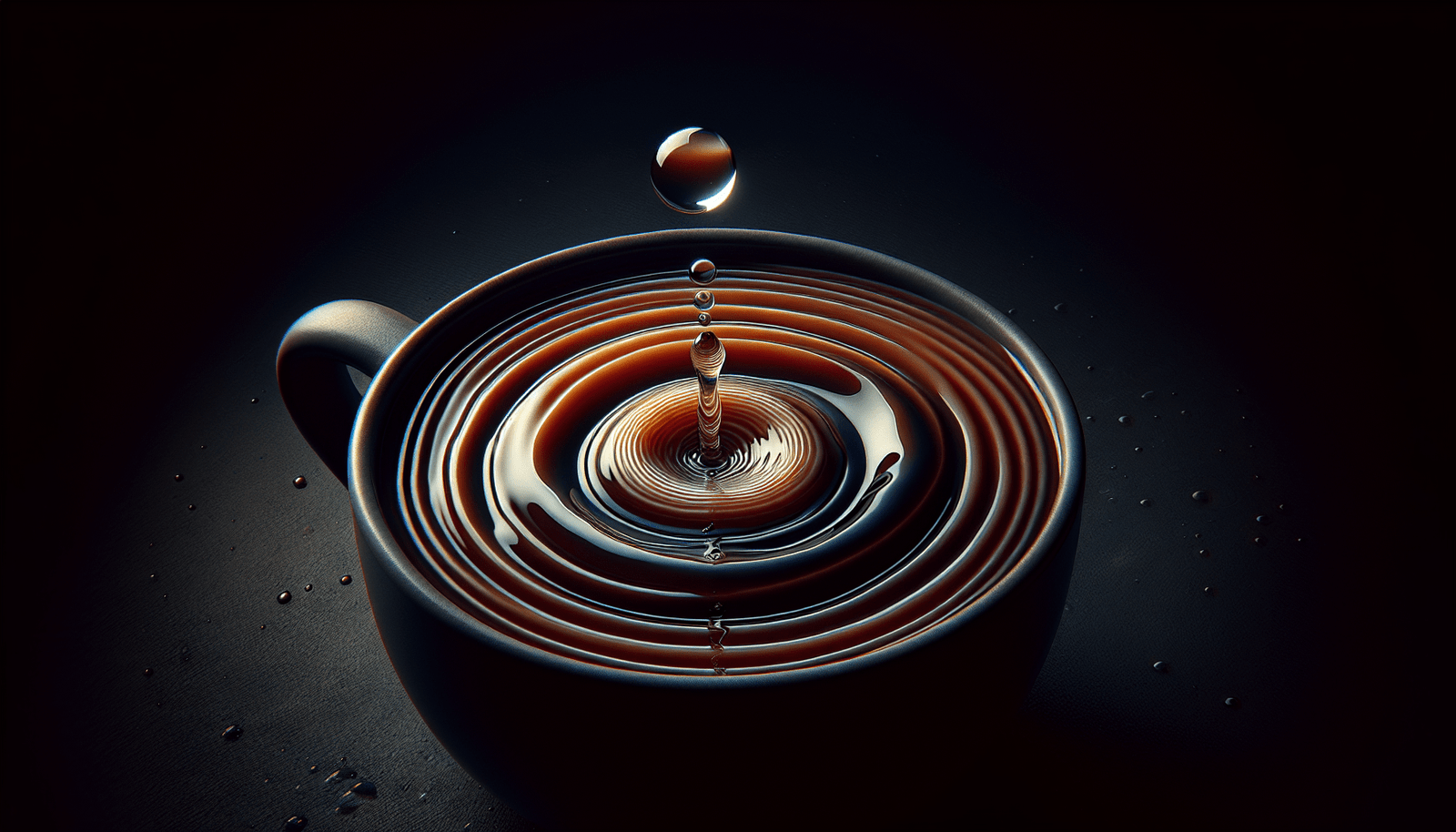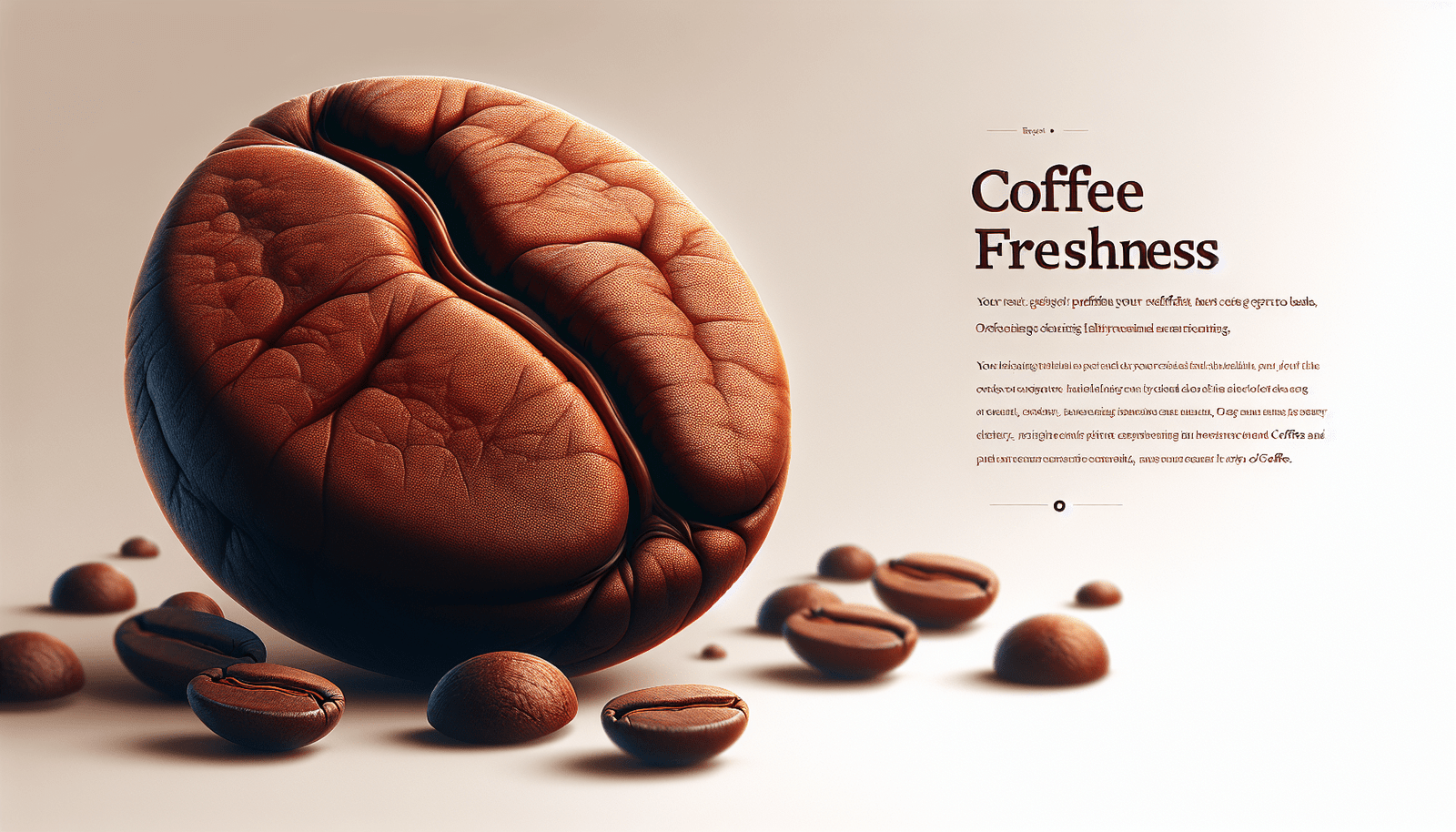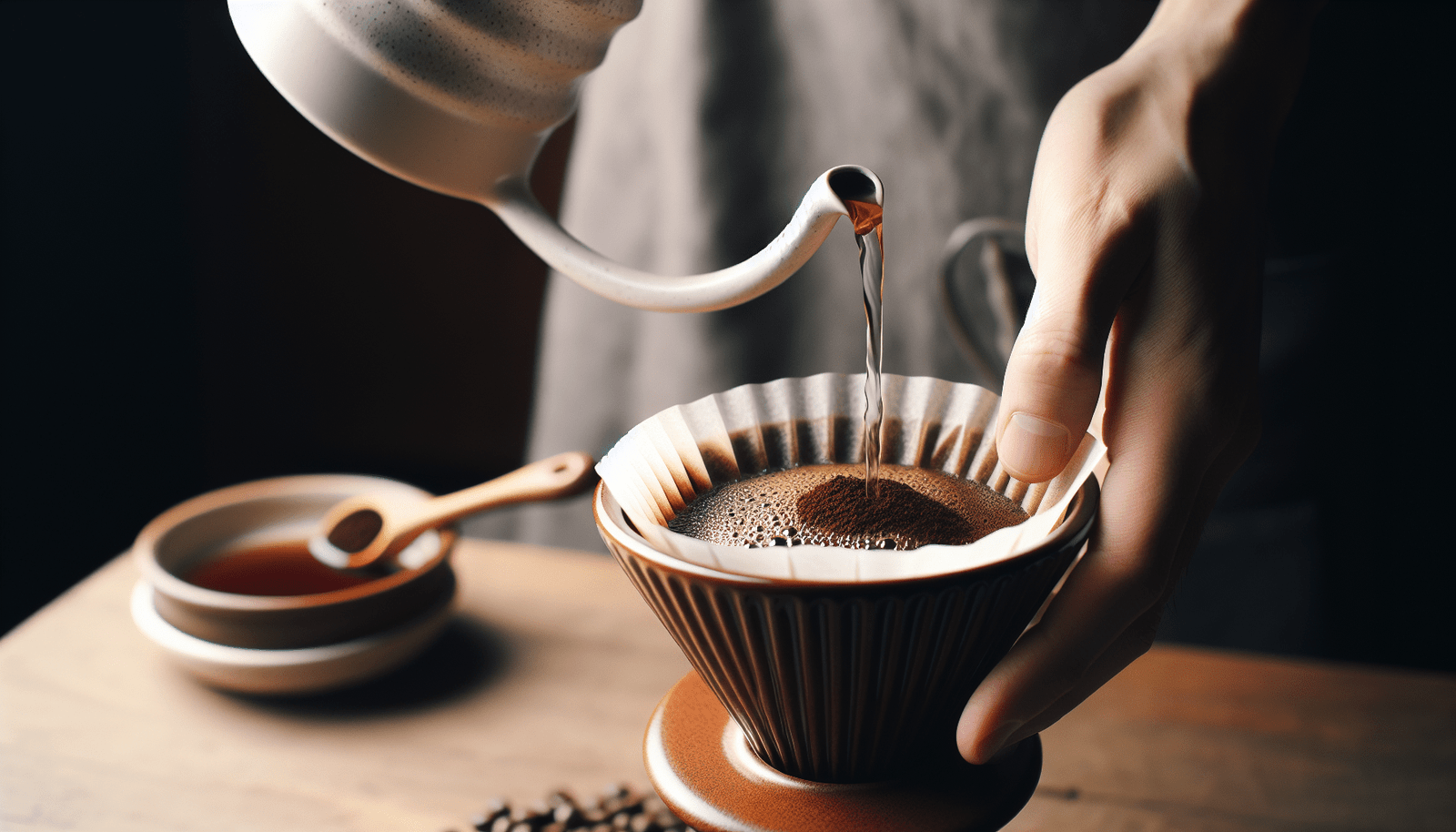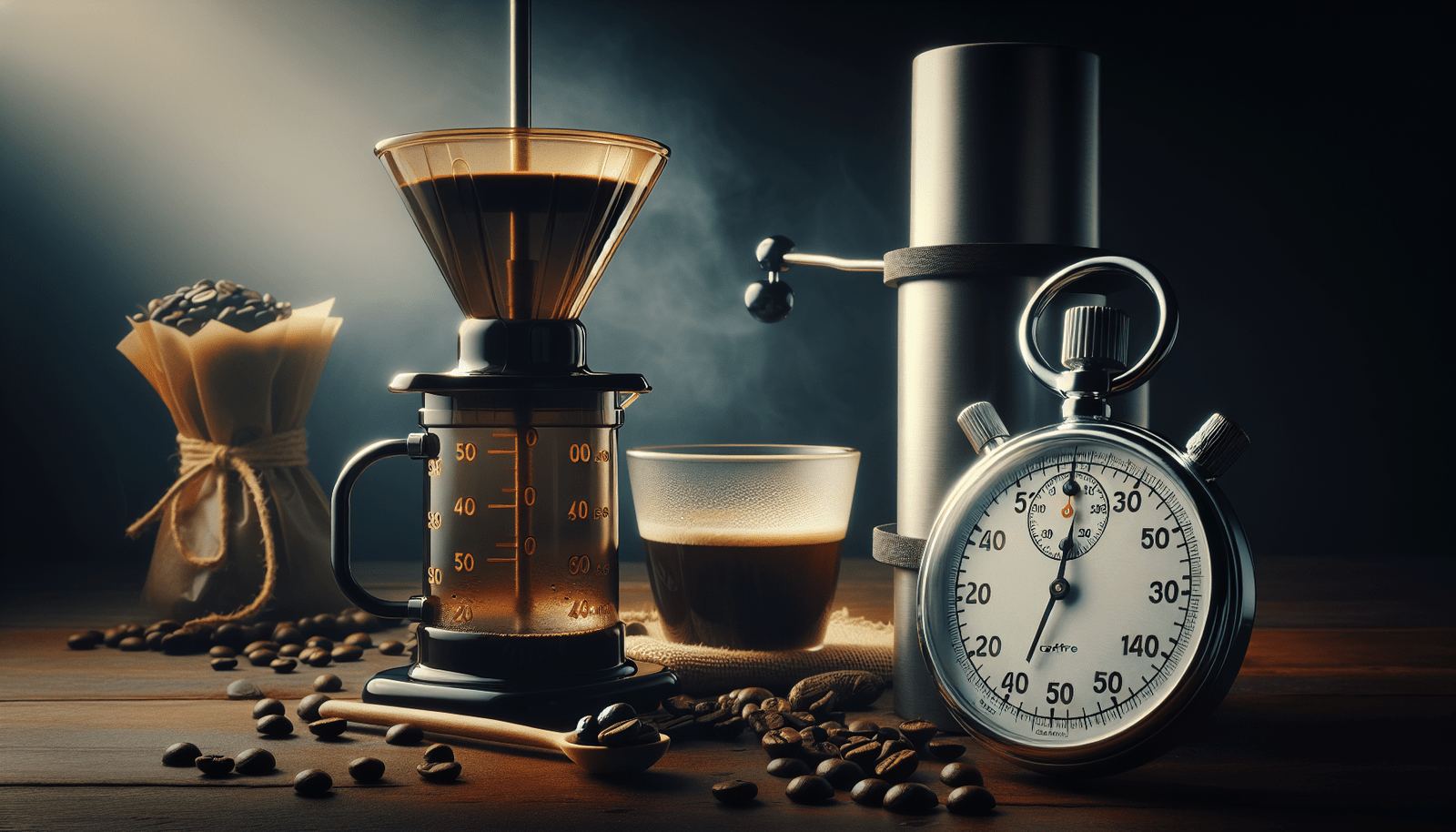You love starting your mornings with a fresh cup of coffee, filling your senses with its rich aroma and smooth flavor. But have you ever wondered how the quality of water affects its taste? From the mineral content to the pH level, water plays a crucial role in influencing the flavor profile of your favorite beverage. In this article, we will explore the intriguing link between water quality and coffee taste, uncovering the factors that contribute to that perfect cup of Joe. So grab your mug and let’s discover the secrets behind the art of brewing with the right water.
The Importance of Water Quality in Coffee Brewing
Have you ever wondered why some cups of coffee taste better than others? It’s not just about the coffee beans or the brewing equipment – water quality plays a crucial role in the flavor of your favorite beverage. Understanding the role of water in coffee extraction is key to achieving the perfect cup every time.
Understanding the Role of Water in Coffee Extraction
Water serves as the primary medium for extracting the flavors from coffee beans during the brewing process. It dissolves the soluble compounds that give coffee its unique taste and aroma. Without the right quality and composition of water, the flavors and characteristics of coffee could be compromised.
The Different Components of Water that Affect Taste
Several factors within the water composition can affect the taste of your brewed coffee. One of these factors is pH, which refers to the acidity or alkalinity of the water. pH levels can significantly impact the flavor profile of your coffee, influencing the perceived acidity and bitterness.
Another important component to consider is the mineral content of water. Minerals such as calcium, magnesium, and potassium can enhance the flavors of coffee, adding complexity and depth. On the other hand, excessive mineral content can lead to over-extraction and a harsh, unpleasant taste.
The Effect of pH on Coffee Flavor
The pH level of water directly affects the balance of acidity and bitterness in your coffee. Ideally, the pH should be around 6.5 to 7.5 for optimal extraction and a balanced flavor profile. Water with a higher pH can result in a more acidic brew, while lower pH levels may produce a bitter taste.
The Role of Mineral Content in Water
Minerals in water contribute to the overall taste and body of coffee. Calcium, for example, can enhance sweetness and reduce bitterness, while magnesium can give coffee a rounder, fuller mouthfeel. Understanding the mineral content in your water can help you adjust and optimize your brewing process accordingly.
The Significance of Total Dissolved Solids (TDS)
Total Dissolved Solids (TDS) is a measurement of all the dissolved substances in water, including minerals, salts, and other compounds. TDS plays a vital role in extracting the flavors from coffee beans. The ideal TDS range for brewing coffee is around 150-250 parts per million (ppm), as it ensures a balanced extraction without overpowering or underwhelming flavors.
The Influence of Chlorine and Other Impurities on Taste
Tap water often contains chlorine and other impurities that can adversely affect the taste of your coffee. Chlorine, in particular, can impart a harsh, chemical flavor, overshadowing the delicate nuances and flavors you want to savor. It is crucial to remove chlorine and other impurities to optimize the taste of your brewed coffee.
The Role of Hardness in Water and Its Impact on Coffee Taste
Water hardness refers to the concentration of calcium and magnesium ions in water. This measurement is essential, as it can significantly impact the extraction process and taste of your coffee.
Defining Water Hardness and Its Measurement
Water hardness is typically measured in parts per million (ppm) or grains per gallon (gpg). The higher the concentration of calcium and magnesium, the harder the water. The ideal range for brewing coffee is between 50-150 ppm or 3-8 gpg, as it strikes a balance between enhancing flavors and minimizing the risk of scale build-up.
The Relationship Between Water Hardness and Coffee Extraction
The hardness of water affects the coffee extraction process. Hard water can lead to over-extraction, resulting in a bitter and unpleasant taste. It can also contribute to scale build-up in coffee equipment, reducing the lifespan and performance of your brewing apparatus.
How Water Hardness Affects the Taste of Coffee
When water is too hard, it can cause certain compounds in coffee to be extracted excessively, including tannins. This can make coffee taste bitter and astringent. On the other hand, soft water can lead to under-extraction, resulting in a flat and weak coffee flavor. Achieving the right water hardness can help you extract the desired flavors from your coffee beans.
Finding the Ideal Level of Hardness for Coffee Brewing
Finding the ideal level of water hardness for coffee brewing involves striking a balance between optimal extraction and equipment maintenance. It may require experimentation and testing with different water sources or filtration methods. Ultimately, the goal is to achieve a water hardness that enhances the flavors of your coffee without compromising the longevity of your equipment.
Understanding Alkalinity and Its Effect on Coffee Flavor
Another crucial aspect of water quality is alkalinity, which refers to the water’s ability to resist changes in pH. Alkalinity can impact the taste and acidity of your brewed coffee, making it an essential consideration for achieving the perfect cup.
What is Alkalinity and How is it Measured?
Alkalinity is a measure of the water’s ability to neutralize acids. It is usually measured in parts per million (ppm) or milligrams per liter (mg/L). High alkalinity can result in a more bitter and flat-tasting coffee, while low alkalinity can lead to a sharp, sour flavor profile.
The Relationship Between Alkalinity and Coffee Extraction
Alkalinity affects the extraction process by influencing the acidity of coffee. If the water used for brewing has high alkalinity, it can neutralize the acidity in the coffee, resulting in a dull and lifeless taste. Conversely, low alkalinity can allow the acidity in coffee to shine through, adding brightness and complexity.
The Impact of Alkalinity on Coffee Taste and Acidity
Alkalinity plays a significant role in shaping the acidity and overall flavor balance of coffee. The right level of alkalinity can enhance the natural acidity of coffee beans, giving your brew a vibrant and lively taste. It is crucial to strike the right balance to achieve the desired flavor profile.
Balancing Alkalinity for Optimal Coffee Flavor
To achieve the optimal flavor, it may be necessary to balance the alkalinity of your water. This can be done through various means, including adding specific minerals or using water treatments. By adjusting the alkalinity, you can tailor the flavor of your coffee to your preferences and enhance its overall taste.
The Role of Chlorine and Other Impurities in Water
Tap water often contains chlorine and other impurities that can significantly impact the taste of your coffee. Removing these impurities is crucial for achieving the best possible flavor in your brew.
The Presence of Chlorine in Tap Water
Chlorine is commonly added to municipal water supplies as a disinfectant. While it serves a vital purpose in keeping water safe, chlorine can leave behind unpleasant tastes and odors in your coffee. It’s important to remove chlorine to prevent it from overpowering the delicate flavors of your coffee.
How Chlorine Affects Coffee Taste and Aroma
Chlorine can cause coffee to taste and smell like chemicals, detracting from the nuances and subtleties that make freshly brewed coffee so enjoyable. It can mask the natural flavors of the beans and impart an undesirable aftertaste. Removing chlorine is essential to ensure a clean and pure coffee flavor.
Removing Chlorine and Other Impurities from Water
There are several methods available for removing chlorine and other impurities from water. Activated carbon filters, such as those attached to faucet mounts or integrated into water filtration systems, are effective in removing chlorine. Additionally, using a water conditioner or reverse osmosis system can further eliminate impurities and improve the quality of your water for brewing coffee.
Alternative Water Sources for Coffee Brewing
If tap water quality is a concern, you may consider using alternative water sources for brewing your coffee. Distilled water, for example, is free from impurities and minerals, providing a blank canvas for showcasing the flavors of your coffee beans. Spring water or filtered water can also be viable options, as long as their mineral content is suitable for your desired flavor profile.
Optimizing Water Quality for Different Brewing Methods
Different brewing methods require specific water considerations to achieve the best results. Whether you’re brewing espresso, pour-over, drip, French press, or cold brew, understanding the influence of water quality is crucial for optimizing the flavors and characteristics of your coffee.
The Influence of Water on Espresso Extraction
Espresso, as a highly concentrated and intense brewing method, is particularly sensitive to water quality. The choice of water can affect the extraction time and balance of flavors in espresso. For optimal results, water with a slightly higher mineral content is often recommended to enhance the richness and sweetness of the espresso shot.
Water Considerations for Pour Over and Drip Brewing
The pour-over and drip brewing methods benefit from water with balanced mineral content and alkalinity. Water that is too hard can result in over-extraction and bitterness, while water that is too soft can lead to under-extraction and a weak flavor. Finding the right water composition can help you achieve a harmonious extraction and a well-rounded cup of coffee.
Water Quality for French Press and Cold Brew
In French press and cold brew methods, water quality plays a significant role in shaping the final flavor profile. Since these brewing techniques involve a longer steeping process, water with a lower mineral content is generally preferred. This helps avoid over-extraction and allows the unique flavors of the coffee to develop more subtly.
Special Considerations for Single-Origin and Specialty Coffees
Single-origin and specialty coffees often feature distinct flavor profiles that can be further enhanced or hindered by water quality. These coffees are highly nuanced and delicate, requiring precise water parameters to highlight their unique characteristics. Experimenting with different water sources and compositions can help you unlock the full potential of these exceptional coffees.
The Impact of Water Temperature on Coffee Extraction
Water temperature is a critical factor in the coffee brewing process. It affects extraction efficiency, flavor balance, and overall brewing stability. Understanding the optimal temperature range and its influence on coffee extraction can help you consistently achieve the desired flavors in your cup.
The Optimal Temperature Range for Coffee Brewing
The ideal water temperature for coffee brewing is typically between 195-205°F (90-96°C). At this temperature range, the water can effectively extract the desirable compounds from the coffee while minimizing the extraction of undesirable ones. Water that is too cool can result in under-extraction, producing weak and sour coffee, while water that is too hot can lead to over-extraction, resulting in a bitter and astringent taste.
The Effect of Water Temperature on Extraction Efficiency
Water temperature directly affects the solubility of coffee components, impacting the overall extraction efficiency. Hotter water extracts more compounds from the coffee, including essential oils and flavors, while cooler water extracts fewer compounds, potentially resulting in a milder taste. Controlling the water temperature during the brewing process is crucial for achieving consistent and well-extracted coffee.
Controlling Water Temperature for Consistent Results
Maintaining consistent water temperature throughout the brewing process is essential for achieving reliable and repeatable results. Using a kettle with a built-in temperature control or a thermometer can help you monitor and control the water temperature accurately. This ensures that your coffee is brewed within the optimal temperature range, resulting in a consistent flavor profile.
Cold Brewing and Its Unique Flavor Profile
Cold brewing is a popular method for creating a unique flavor profile in coffee. By steeping coffee grounds in cold or room temperature water for an extended period, a smoother, less acidic coffee is produced. The cold brewing process reduces the extraction of bitter compounds and highlights the sweeter and more nuanced flavors in the beans. Cold brew enthusiasts often experiment with different water types to further enhance the desired flavor characteristics.
Testing Water Quality for Coffee Brewing
To achieve the best possible coffee taste, it is essential to assess the quality of your water. There are various methods available for testing water quality at home, allowing you to measure key parameters that can impact the flavor of your coffee.
Methods for Assessing Water Quality at Home
Water test kits are readily available and provide a convenient way to assess water quality at home. These kits typically measure parameters such as pH, mineral content, TDS, and alkalinity. By conducting these tests, you can gain valuable insights into the composition of your water and make informed decisions on adjusting its quality for optimal coffee brewing.
Using Water Test Kits for Measuring Key Parameters
Water test kits come with detailed instructions on how to perform various tests. These may involve collecting water samples, adding specific reagents, and observing color changes or using test strips. By following the instructions carefully and interpreting the results correctly, you can evaluate the key parameters that impact coffee flavor and adjust your brewing process accordingly.
Understanding the Results and Interpretation
Interpreting the results of water tests can be complex, especially for those unfamiliar with water chemistry. It is advisable to consult resources or seek guidance from professionals who specialize in water analysis. Understanding the significance of each parameter and how it relates to coffee flavor can help you make informed decisions on water treatment and optimization.
Seeking Professional Water Analysis
For a more comprehensive assessment of water quality, seeking professional water analysis may be necessary. Water testing laboratories can provide detailed reports on various parameters, enabling you to understand the composition of your water more thoroughly. Professional analysis can be particularly beneficial for cafes and commercial establishments that rely on top-quality water for consistent coffee production.
Improving Water Quality for Better Coffee
Now that you understand the importance of water quality in coffee brewing, it’s time to explore ways to improve the quality of your water. There are several options available to ensure that the water you use produces the best possible taste in your coffee.
Water Filtration Systems for Coffee Brewing
Water filtration systems can significantly improve water quality by removing impurities, chlorine, and other undesirable elements. Filtration systems come in various forms, including faucet-mounted filters, under-sink systems, and whole-house systems. Choosing the right filtration system depends on your specific needs and the composition of your tap water.
Water Softeners and Conditioners for Optimal Performance
Water softeners and conditioners are designed to reduce water hardness, preventing scale build-up in coffee equipment. These systems use ion exchange or other methods to remove calcium and magnesium ions that cause hardness. By implementing a water softening or conditioning system, you can protect your coffee equipment and maintain optimal performance.
Choosing the Right Bottled Water for Coffee
If tap water quality is a concern, bottled water can be an alternative option for brewing coffee. When choosing bottled water, consider its mineral content and overall composition. Look for water brands that disclose their water quality characteristics, including pH, TDS, and alkalinity. Experimenting with different bottled water brands can help you find the best match for your preferred coffee flavor.
Water Treatment Options for Home and Cafés
Depending on your specific water quality needs, various treatment options are available to improve water for coffee brewing. Water conditioners, reverse osmosis systems, water softeners, and specialty water recipes can all contribute to achieving the desired water quality for exceptional coffee flavor. Consult with water treatment experts to explore the best options for your home or café setup.
The Relationship Between Water Quality and Equipment Longevity
Poor water quality can have a detrimental effect on the lifespan and performance of your coffee brewing equipment. Understanding the potential damage caused by poor water quality is crucial for equipment maintenance and longevity.
The Potential Damage Caused by Poor Water Quality
Water with high mineral content, excessive hardness, or impurities can lead to mineral deposits and scale build-up in coffee equipment. Scale accumulation can clog pipes, valves, and filters, compromising the performance and functionality of your brewing apparatus. Protecting your equipment from these issues requires careful consideration of water quality.
Minimizing Scale Build-Up and Deposits
To minimize scale build-up and deposits, regular equipment maintenance is essential. Descale your coffee machine periodically using descaling solutions or vinegar to remove accumulated scale. Additionally, implementing water treatment methods, such as water softeners or filtration systems, can significantly reduce the risk of scale formation and extend the lifespan of your coffee equipment.
Improving Lifespan and Performance with Proper Water Treatment
Proper water treatment is crucial for maintaining the longevity and performance of your coffee brewing equipment. Addressing water hardness, mineral content, and impurity removal through filtration or conditioning systems can prevent scale build-up and ensure consistent performance. By optimizing the quality of the water you use, you can protect your investment and enjoy high-quality coffee for years to come.
Maintenance Tips for Coffee Brewing Equipment
In addition to addressing water quality, regular maintenance of your coffee brewing equipment is key to ensuring its longevity and optimal performance. Follow the manufacturer’s instructions for cleaning and maintenance schedules. Regularly clean and descale your equipment, replace filters as recommended, and keep all components in good working order. Proper care and maintenance will contribute to the overall quality of your coffee.
Exploring the Influence of Water Origin on Coffee Character
Water source or origin can have a surprising impact on the character and flavor of your coffee. The unique regional characteristics of water can interact with coffee beans, resulting in distinct taste profiles.
How Water Source Affects Coffee Flavor
Water source plays a role in coffee flavor due to variations in mineral content, pH, and overall composition. Different regions and water sources may impart specific characteristics to the final brewed coffee. For example, water sourced from mineral-rich mountain springs may contribute to a more vibrant and complex flavor, while water from certain wells may have a unique minerality that enhances specific coffee profiles.
Distinctive Characteristics of Different Water Types
Water types, such as spring water, well water, or water from specific regions, can introduce distinct characteristics to your coffee. Spring water may enhance sweetness or acidity, depending on its mineral content. Well water may bring out earthy or nutty qualities, influenced by its unique composition. Exploring different water types can provide exciting opportunities to discover new flavor dimensions in your coffee.
Experimenting with Different Water Sources
For the adventurous coffee enthusiast, experimenting with different water sources can be an intriguing journey. By using water from various regions, wells, or springs, you can unlock new flavor profiles and uncover unexpected nuances in your coffee. Keep detailed notes and compare the results to discover your preferred water sources for different coffee beans and brewing methods.
Regional Water Profiles and Coffee Taste
Water composition varies significantly between regions, contributing to the unique flavor profiles of coffees from different areas. Coffee-growing regions often have distinct water characteristics that interact with the beans during brewing. Whether it’s the mineral-rich waters of volcanic regions or the soft, glacial waters of colder climates, the regional water can be a fascinating element influencing the ultimate taste experience of your coffee.
By paying attention to water quality and its impact on coffee taste, you can elevate your coffee brewing to new heights. Understanding the role of water components, such as pH, mineral content, and alkalinity, allows you to fine-tune your brewing process to achieve the most flavorful results. Whether you’re using tap water, bottled water, or exploring water sources from around the world, water quality is an essential consideration for every coffee enthusiast. So, next time you brew a cup of coffee, remember the importance of water quality and savor the difference it can make in your favorite beverage.




